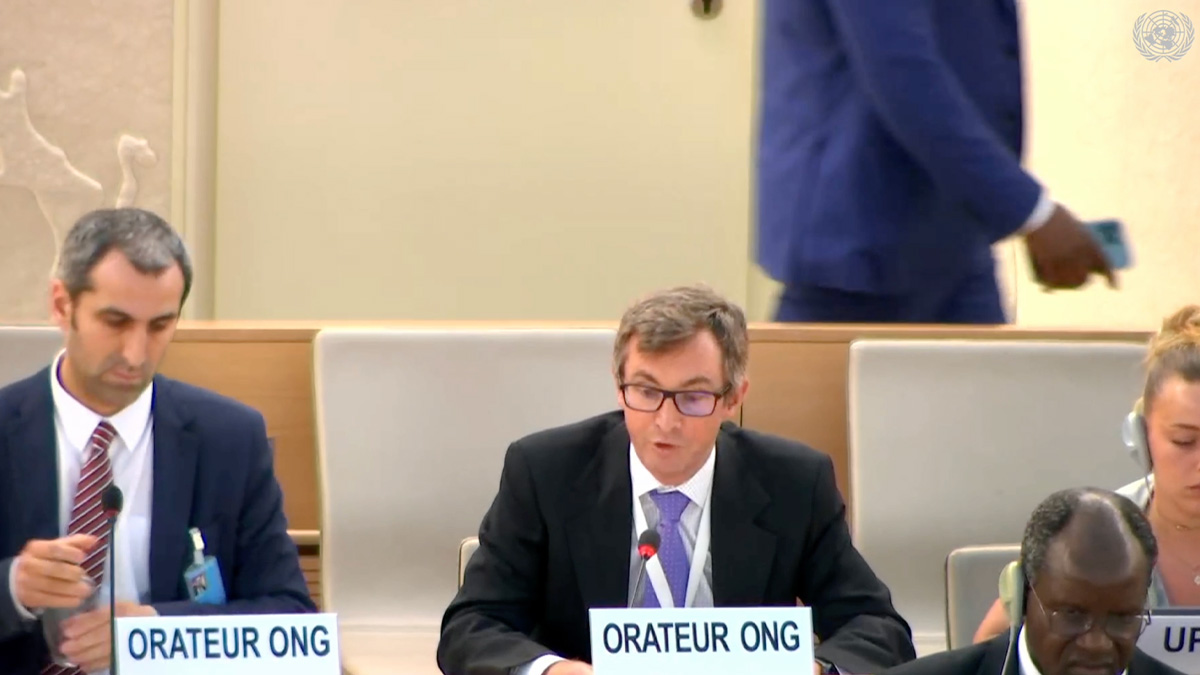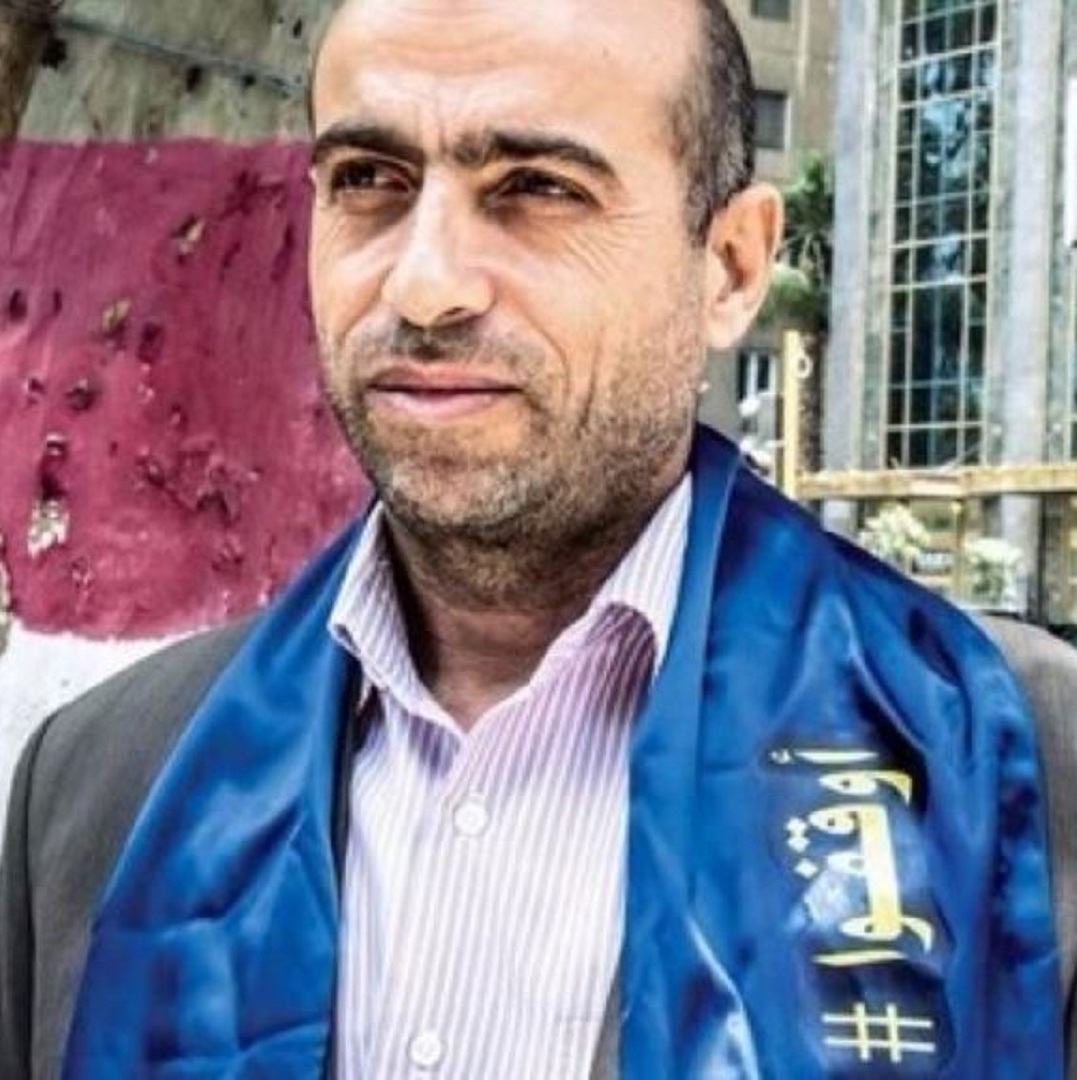(Geneva) – The need to end impunity for attacks against human rights defenders, together with the need to enact specific laws and policies for their protection, have been identified as key priorities for States by the UN Special Rapporteur on Human Rights Defenders, Michel Forst, in his first report to the Human Rights Council.
The report, which will be discussed by the Council in March, provides an overview of the Special Rapporteur’s activities since his appointment in June 2014 – including the conduct of regional consultations with over 150 human rights defenders across Asia, Central Asia, Eastern Europe, the Middle East and North Africa – and sets out his vision and proposed activities for the mandate for the year ahead.
Ending impunity
The report makes clear that combatting impunity for threats and attacks against human rights defenders will be a key priority for the Special Rapporteur, with a thematic study on the topic foreshadowed in the coming years.
According to the report, the fact that so many attacks and violations against human rights defenders ‘are not investigated or are shelved’ contributes to an environment where attacks are perceived as being licensed or at least tolerated.
‘Ending impunity is an essential condition for ensuring the protection and safety of human rights defenders,’ the report says. According to the Rapporteur, this requires that States discharge their duty to ‘ensure the prompt and independent investigation of all violations against defenders’, the ‘prosecution of alleged perpetrators’, and ‘access to just and effective remedies’, including compensation, for victims.
A conducive legal environment and effective protection mechanisms
The report emphasises the importance of a conducive legal environment for the work of human rights defenders, condemning the use of national security and counter-terrorism laws to target and criminalise them, and calling on all States to enact specific laws to protect and support their work.
‘In some instances, national security and counter-terrorism legislation and other measures, such as laws regulating civil society organisations, have been misused to target human rights defenders or have hindered their work and endangered their safety in a manner contrary to international law,’ the report says.
In addition to calling on States to review and repeal restrictive legislation, the Special Rapporteur notes that he ‘intends to redouble efforts to convince governments to introduce specific national measures, as Brazil, Colombia, Cote d’Ivoire and Mexico have done’, while also emphasising that much remains to be done to improve the effectiveness and efficiency of protection mechanisms in these jurisdictions. In this regard, the report notes the Special Rapporteur’s availability and willingness to provide technical assistance to States to guide them in the implementation of the Declaration on Human Rights Defenders at the national level. Such efforts should include the establishment and adequate resourcing of a national human rights institution in accordance with the Paris Principles, with a mandate to support human rights defenders and to follow up on the implementation of recommendations for their protection from international and regional human rights mechanisms.
Focusing on defenders most at risk
Through the report, the Special Rapporteur recognises that certain groups of defenders face heightened and particular risks because of their identities or the nature of their work. Without limitation, this includes ‘those working on economic, social and cultural rights and minority rights; environmental defenders; defenders of LGBTI rights; women defenders and those who work for women’s rights; defenders who work in the area of business and human rights; those who work in an area exposed to internal conflict or a national disaster; defenders living in isolated regions; and those working on past abuses, such as the families of victims of enforced disappearance’.
In addition to the groups above, the Special Rapporteur notes that he has received numerous cases regarding whistleblowers, bloggers and ‘journalists who have reported on or written articles about human rights violations’, all of whom he ‘considers to be human rights defenders, in that they meet the criteria set out in the Declaration on Human Rights Defenders’.
The Special Rapporteur notes his intention to focus much of his work on those human rights defenders who are ‘most exposed’, with a view to providing them more ‘effective’ and ‘personal’ protection, and calls on States to similarly ‘pay particular attention’ to these groups.
Combating and promoting accountability for reprisals
Through the report, the Special Rapporteur notes his grave concern at the worsening incidence and severity of reprisals against those who communicate or cooperate, or who seek to communicate or cooperate, with the United Nations.
The report discloses that, since his appointment, the Special Rapporteur has sent more than 30 communications to States regarding alleged reprisals against human rights defenders for their cooperation with the UN, with violations including ‘personal threats or threats against family members, smear campaigns, death threats, physical attacks, kidnapping, judicial harassment, murder and other forms of police harassment or intimidation’.
In the Special Rapporteur’s view, the obligation to combat reprisals engages the responsibility of both States and the UN itself.
For their part, States have a duty to ‘ensure that human rights defenders can participate without hindrance in the mechanisms of the United Nations and regional intergovernmental organisations’. This duty extends to that ensuring that ‘acts of intimidation and reprisals … are firmly and unequivocally condemned’, and that ‘any legislation criminalising activities in defence of human rights through cooperation with international mechanisms is repealed’. The Special Rapporteur also urges States to support the designation of a high-level UN focal point on reprisals as envisaged by Human Rights Council resolution 24/24.
The UN itself also bears a duty to combat reprisals, with the Special Rapporteur expressing concern at the reported failure of some senior UN staff in the field to ‘show their commitment to human rights defenders or to support requests for protection from some witnesses’. It is incumbent on the UN to ensure that ‘all agencies and programmes of the Organisation are made more aware of the question of human rights defenders’, that ‘specific measures relating to human rights defenders are included in its programmes and activities’ and that senior staff ‘provide human rights defenders who are subjected to threats with systematic support and protection’, the Special Rapporteur says.
Strengthening follow up
In terms of activities, the report discloses that the Special Rapporteur intends to strengthen the mandate’s focus on follow up, including by systematically pursuing individual cases to ensure a response from the State and for the alleged victim. Each case involves ‘an individual story that requires a specific response; silence is the worst possible response,’ the report says.
The Special Rapporteur also emphasises the importance of follow up to country missions, offering to provide advice and technical assistance to States in relation to the implementation of recommendations and indicating that he would be pleased to receive invitations from NGOs, universities and other stakeholders which may provide informal opportunities to assess and follow up on the situation of human rights defenders in the country concerned.
New methods of work
Finally, the report outlines the Special Rapporteur’s intention to ‘interpret his mandate as widely as possible’ and ‘to explore new avenues and innovative working techniques’.
Possible activities identified in this regard include intervening as amicus curiae in national and regional courts and tribunals in cases concerning the situation and protection of human rights defenders, and undertaking joint projects and missions with other UN Special Rapporteurs (such as the mandate holders on freedom of expression and on freedom of association and assembly) and with his counterpart Special Rapporteurs on Human Rights Defenders of the African Commission and the Inter-American Commission.
The report also foreshadows closer engagement with the media, both in the sense of using the media (including social media) to promote the Declaration and the vital role of defenders, and in the sense of seeking to support and protect media workers who are themselves human rights defenders.
Presentation of the report and high-level side event
At this stage, the draft program of work for the 28th session of the Human Rights Council provides for the Special Rapporteur to present and engage in dialogue about the report on 9 and 10 March 2015 at the Palais des Nations in Geneva.
The presentation of the report will be followed by a high-level side event on 10 March focused on ‘Human rights defenders and national security’, with both the Special Rapporteur on Human Rights Defenders and the Special Rapporteur on Human Rights and Counter-Terrorism as confirmed panelists. This event will be presented jointly by ISHR, FIDH, ICJ, Article 19 and OMCT.



